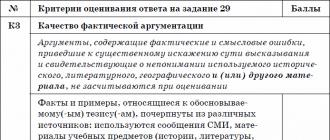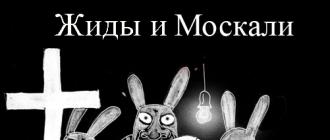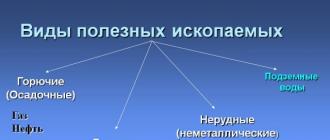Mayakovsky here artistic means. Brief analysis of the poem "Nate!" Mayakovsky. Analysis of Mayakovsky's poem "Nate"
The lyrics of Vladimir Mayakovsky, one of the most original and talented poets of the 20th century, are clearly divided into two periods. His works, written before the revolution of 1917, are distinguished by their enormous energy, power and strength of the lyrical hero. But, at the same time, the poems of this period are filled with loneliness, the hero's longing for love and understanding, for a kindred soul, which he does not see in the reality surrounding him. Hence the protest, rebellion, outrageousness, the desire of Mayakovsky's hero to rebuild the whole world, the whole Universe.
Mayakovsky's poem "Nate!" (1913) is one of the most striking and characteristic works of the poet's early work. The name itself sets us up for a shocking mood. The colloquial and rude “Nate!”, which the hero throws to the soulless and vulgar public, explains his attitude towards her. The hero, like a sop, throws his poems to this public, not hoping for their understanding, and even more so for a worthy assessment of creativity.
The poem "Nate!" has elements of a specific plot. The lyrical hero in some institution, maybe in a restaurant, reads his poems to the chewing public. He speaks to these people with the most painful, about what he tears from the heart, about his most secret: "I have opened so many verses of caskets to you, I am a wast and spender of priceless words." The epithet "priceless" emphasizes the significance of these words for the lyrical hero.
Why does he call himself a "waste and spender?" It seems to me, on the one hand, because the hero realizes the futility of his efforts to open up to the ever-chewing "fat" men and women. On the other hand, these definitions indicate the strength and powerful energy of a hero who, not sparing himself, will continue to try to do something, to change the world with his creativity.
But what about the public? She does not care:
Here you are, man, you have cabbage in your mustache
somewhere half-finished, half-eaten cabbage soup;
here you are, a woman, whitened thickly on you,
you look like an oyster from the shells of things.
These people are mired in petty worries from the "world of things." They tightly hid their soul in a shell and are now unable to understand anything that does not concern their stomach. The vivid comparison "look like an oyster from the shells of things" helps us to understand this.
In the third quatrain, the boundaries of the poem begin to expand. Now the hero finds himself face to face with the whole hostile world, with the crowd. The metaphor that characterizes these relationships is very strong and vivid:
All of you on the butterfly of a poetic heart
pile up, dirty, in galoshes and without galoshes.
Galoshes here are a very accurate detail characterizing the "well-fed and vulgar public." For the hero, she is "dirty", dirty first of all with her soul, because she is deaf to everything beautiful.
Then the picture unfolds, intensifying its impact. These people in galoshes turn into a crowd that stands up like a powerful wall against the lyrical hero, not wanting to understand and accept him. The comparison “the hundred-headed louse bristles the legs” is evaluative. It contains the attitude of the lyrical hero in the crowd, which causes only disgust.
But the lyrical hero considers himself free from the opinion of this crowd. With joy and laughter, he states that he can simply spit in the face of this entire audience at any moment. What does it mean? It seems to me that Mayakovsky means that he can openly tell these people everything that he thinks about them. His hero can afford any outrageousness in order to somehow “stir up” the crowd, make it feel.
The poem ends with a repetition of a line from the first stanza of the poem. In it, the hero repeats once again that he is "a squanderer and waste of priceless words." Thus, the composition "Nate!" can be considered circular. Despite all the loneliness of the lyrical hero, the poem is positive. It emphasizes the strength, freedom, brightness of the poet, who will "do his job", no matter what.
This work touches upon the theme of the poet and the crowd, traditional for Russian poetry, the relationship between the poet and the people. This topic is mainly solved in a classical way, despite all the innovation of artistic means. The poet is not understood by the crowd, rejected and ridiculed by it. But, at the same time, the poet interacts with this crowd, he opposes it, mocks and shocks.
The poem "Nate!", Written in 1913, is one of the poet's early works. This is one of the classic examples of Mayakovsky's early satire. Main topic early lyrics in general and this poem in particular - the rejection of the existing reality. Here the poet mercilessly, furiously criticizes the existing world order, creating vivid satirical images of well-fed, self-satisfied, indifferent people. In the center of the poem is the traditional conflict the poet and the crowd. The public, the crowd takes the poet for a slave, ready to fulfill her every desire. But he rebels against her, proclaiming his main goal - serving art. The first stanza draws the environment of the lyrical hero. The poet depicts people in the form of "flabby fat" (a symbol of satiety, which turned into complacency and stupidity). The hero opposes himself to this society, because his distinguishing feature is spiritual generosity, he is "a waste and spender of priceless words."
In the second stanza, the gap between the poet and the crowd widens: the poet depicts people who are completely immersed in everyday life and destroyed, morally killed by him:
Here you are, a woman, whitened thickly on you,
You look like an oyster from the shell of things.
The third stanza, like the first, is built on the opposition of the fragile, quivering "butterfly of a poetic heart" to the vile "hundred-headed louse", personifying a crowd of inhabitants. The outrageous, cynical and rude behavior of the hero in the final stanza is caused, on the one hand, by the fact that the creator must be strong, be able to defend himself, not give offense. And on the other - the desire to attract attention and be heard.
Mayakovsky in the poem "Nate" clutters up the mind. The multitude of objects, the monstrous shapelessness of the details, the avalanche of the grotesque hypnotize; perhaps that is why it is often difficult to object to Mayakovsky. To some extent, here he can be compared with Boris Pasternak, because. Pasternak, inventing his own coordinate system, which can be conditionally called “jamais vu” (that is, the priority of the explicit over the metaphysical), also piles up objects. However, reading both poets, one can be convinced that the details of Pasternak, in contrast to the details of Mayakovsky, firstly, exist only in the present, without falling into the past and not looking ahead into the future, like Mayakovsky, whose details suffer from paramnesia , whose characteristic symptom is dejă vu, i.e. mixture of explicit and metaphysical. Secondly, Pasternak proceeds from considerations of taste when he attracts some detail from the outside, while Mayakovsky does not seem to think about whether the detail is “tasty” or not, which gives a “slap in the face to public taste”. For example, let's compare:
…heart, splashing on the playgrounds,
wagon pours doors in the steppe...
(Parsnip)
... All of you on a poetic butterfly hearts
perch, dirty, in galoshes and without galoshes…
(Mayakovsky)
Such differences between Pasternak and Mayakovsky, to some extent, can be explained (conditionally, not deliberately) by their belonging to different currents: for example, Mayakovsky is a futurist, and Pasternak is an acmeist. One of the "commandments" of acmeism, declared in the manifesto of O.E. Mandelstam, “Love the existence of a thing more than the thing itself.” Mayakovsky does not seem to follow this commandment. He loves the thing itself. “The futurist, not realizing the true meaning of the word, throws it away,” is Mayakovsky’s commandment, written by Mandelstam. But the words “easily thrown out” carry a certain semantic load, due to the exchange of meanings with other words through alliteration and shifting of accents, which, by the way, Mayakovsky often does. Thanks to purely "technical" techniques - alliterated sounds (for example, " With mo tr ite y page itzei") - details are involved in the poem, and they "keep" in the verses solely because of them (devices). And since they "hold on", they are forced to accept the meaning of the whole poem; so, if the poem is satirical, then the task of conveying the satirical meaning is assigned to the detail. Let's try to show this on the example of Mayakovsky's poem. Take the poem "Nate!" and consider it, revealing how its satirical meaning is revealed in the context of details.
I’ll make a reservation right away that it’s no coincidence that the above was about the “clutter of consciousness” characteristic of Mayakovsky. The fact that Mayakovsky uses it everywhere as an artistic principle can be motivated by the fact that “Nate!” - a satirical poem. Attracting the "butterfly", "heart", i.e. rather fragile objects, Mayakovsky, not caring about compatibility, specially draws "perched", "dirty", "in galoshes and without galoshes". The philosopher remarked: “Satire is the transition of the significant into nothing”; in the same way, Mayakovsky makes the transition of the fragile (“the butterfly of the poetic heart”) into nothingness, into galoshes.” However, let's not get ahead of ourselves.
"In an hour from here to a clean alley / Your flabby fat will flow out over a person." Obviously, an hour is a conditional period of time, given that time in Mayakovsky's poetry is a conditional concept, because it depends on the "time of details"; e.g. "cabbage half-eaten cabbage soup" - a detail of the past, and "hundred-headed louse" - of the future ("a crowd of brutal no"). Here, most likely, a satirical comparison of the hour of people with "flabby fat" (bourgeoisie, probably) and the eternity of priceless words and their spender (the poet). Let us pay attention to the impartiality of the “flabby fat”, which from somewhere, where the “verses of the casket” are opened, follows “according to the person”, and to the “coziness” of the caskets and the image of the spendthrift. The first stanza is built on such a deliberate contrast, and even at the level of sound writing, this satirical conflict can be traced. The first two verses are built on alliterated hissing: "h": " h herez" - " h as" - "in h true "-" you h et" - "according to h man"; "w" / "g": "wa w"-" flabby w ii" - " well ir". The last two verses of the first stanza are in more voiced: “to”: “from To ryt" - "sh To atulo To»; "m", "t":
…I am v a m O opened st O only verse O in school a tul O To…
The contrast between the first and second halves of the first stanza is also due to the “commonality” of the first two verses and the last two. Thus, even at the semantic level, Mayakovsky has a satirical conflict; details like "flabby fat" and "clear alleyway" take on additional meaning. For example, an alley with voiced “r” and “k” does not have hissing and, as it were, does not belong to “flabby fat”, but “clean” -
with an alliterated "h" - loses (in a futuristic way) its meaning of pure purity.
We read further the poem "Nate" It is obvious that Mayakovsky "according to the person" attracts first a man, then a woman to the present poetry. Moreover, they really exist in the present, since he, as it were, addresses them: “ Here you…” However, Mayakovsky’s penchant for “paramnesia” (dejă vu) makes itself felt, and he draws on details from the past using the grotesque: “Cabbage<…>somewhere half-finished, half-eaten cabbage soup”; then he shifts the emphasis from the present ("woman") to the usual - ("things, sink”), which increases the effect of satire; those. his present is not ordinary, petty-bourgeois, philistine, but something else.
Then he turns the fragile into nothing, and what can be considered negative (apparently philistine), which, in fact, the satire is aimed at - all with alliterated hissing: “kalo w and about SCH etinite but well cystic head in w b".
“... To me, a rude Hun,” Mayakovsky, finally, definitively indicates his difference from the supposedly “refined connoisseurs of art”; it seems that they do not notice its grotesque, its details at all. And he, apparently, decides on a desperate one - to prove the strength and independence of his priceless words and details - "I will laugh and spit joyfully." The inversion “I’ll spit in your face // I…” adds additional turmoil to the general cheerful and at the same time terrifying chaos, and here satire is in terrifying, demonic fun, laughter over people with “flabby fat”.
Mayakovsky's satire is powerful, destructive, since cluttering up the mind with "metal structures" from the words "general meaning" is a dangerous and effective technique; the rhythm of Mayakovsky's verses also unites the details - the verses receive additional power thanks to the iambic almost without pyrrhias. There is a feeling of an incredible Alter Ego, which puts too much pressure on the often just Ego of an average person. Often Mayakovsky's poems look like a medieval painting by Bosch, where some hundred-legged, hundred-headed creature is tossing and turning in every corner, trying to attract attention. In Mayakovsky, the details are kept almost the same as in the picture, on an invisible canvas.
The most terrible and destructive in Mayakovsky’s satire is the transformation of all chaos, the uncertainty of time, space (“somewhere”, “from here”, “here you are ...” - “half-eaten, half-eaten”), the incompatibility of the present and the ordinary into a spendthrift and waste. Unfortunately, I am more inclined to believe that the existence of a thing should be loved more than the thing itself, just as the meaning of a word is more than the word itself. “Walking in the forest of symbols” and “picking up” a difficult word with a knitting needle were indicated by Mandelstam in “Morning of Acmeism” as untenable methods of poetry. Although Mayakovsky's poems suffer from dejă vu, his satire and poetry in general are amazingly done, with a clutter of consciousness and with this very dejă vu, a swing from the past to the future in the context of the present and vice versa.
Analysis of the poem by Nate Mayakovsky according to plan
1. History of creation. The poem "Nate" (1913) is an open challenge by V. Mayakovsky to the assembled public. At the beginning of his literary career, the poet often had to perform in restaurants, cabarets, and cafes.
Mayakovsky frankly despised well-fed and contented townsfolk. But performances brought income and fame. The famous futurist was distinguished by his outrageous and impudent behavior.
"Nate!" - a vivid example, written by the poet specifically for a performance at the opening of the Pink Lantern cabaret. After reading the poem, the atmosphere became so tense that the police had to be called.
2. Genre of the work. In the classical sense, "Nate!" - a lyric poem. But Mayakovsky's work is so original that it would be more appropriate to call the work a challenge, a denunciation, a "spit" in the direction of "good society."
3. Main theme poems - the opposition of the poet and the crowd. This theme began to be developed in Russian poetry by A. S. Pushkin. But in the work of Mayakovsky, it acquires a completely different sound. The beginning of the 20th century was marked by significant changes in the cultural life of the whole world. The generally recognized authorities were overthrown, new styles and directions arose.
In Russia, one of the most radical trends in literature has become futurism, which completely rejects the "old" art. The main distinguishing feature of the poem "Nate!" - use of rude, obscene language. Mayakovsky deliberately goes into conflict, causing the anger of the crowd. He seeks to cause confusion and horror in the public.
From the first stanza, the author sharply separates himself ("the priceless words wast and spender") from the gathered "flabby fat". Mayakovsky is disgusted to reveal his talent to people who are fed up with food and entertainment. At that time in Russia, few could afford to visit restaurants and cabarets. They gathered predominantly a dark audience, earning money in an unclean way.
Mayakovsky hated the bourgeois way of life. His accusations are directed against gluttony ("cabbage in the mustache"), artificial beauty ("thick white") and thoughtless automatic money-grubbing ("look ... from the shells of things"). The third stanza is even more offensive: the "butterfly of the poet's heart" is contrasted with the "hundred-headed louse" of the crowd. One can only speculate about the reaction of the public to these lines. In the final stanza, Mayakovsky declares his creative freedom and independence. Calling himself a "rude Hun," he claims he can stop his performance at any time. His work is not a commodity. Instead of poems, the crowd may receive a spit in the face from the poet.
4. Composition of the work- partially circular. In the first and last stanzas, the definition given by the poet to himself is repeated - "the priceless words wast and spender."
5. The size of the poem non-traditional, bringing it closer to oral speech. Rhyme cross.
6. Expressive means. Epithets emphasize the poet's disgust at the sight of the crowd: "flabby", "dirty", "hundred-headed". The young futurist uses original metaphors ("verses of caskets", "oyster from the shells of things") and contrasts ("clean alley" - "flabby fat"). Comparing himself with a "rude Hun", the author makes it clear that his goal is the complete destruction of the old society.
7. Main idea works - the poet does not depend on the desires of the crowd. He may, out of necessity, "sell" his works, but his soul and convictions cannot be bought. The poet must always boldly express his views, even if it threatens him with punishment or reprisal.
It would seem that Mayakovsky's poem "Nate" is only four stanzas, nineteen lines of text, but they can be used to make a full-fledged analysis of a work of art. Let's find out how to do it according to all the rules.
Looking back
Today, when the works of Vladimir Vladimirovich are rightfully considered classics and are included in the school curriculum, we have the right to analyze his texts not only as literary critics, but also as psychologists.
In 1913, when the poem "Nate" was written, Mayakovsky celebrated only his twentieth birthday. His soul, like that of any talented young person, requires action, a reassessment of values by society, seeks to give everyone what they deserve, at least in verse. The poet calls himself violent, wild, which in reality should be considered not so much as physical aggression as verbal, directed against injustice. It is thanks to these qualities that the poet will be appreciated by the new government - not ideal, but new, and therefore sung by Mayakovsky.
Emptiness of the aristocracy
The poet is convinced that creativity is perceived by a layer of pseudo-aristocracy as a food product. They do not want to perceive the deep meaning and have one intention - to entertain themselves by listening to rhyming phrases. The author decides to speak directly, without hints, and does so throughout the years of work, this is also evident from the analysis of Mayakovsky's poem "Nate".
In the future, he will call himself a "proletarian poet", will sing of the development of technology and the movement of society towards a brighter future, while at the same time fighting those whose consciousness remained in Imperial Russia. Already in the early work, this struggle takes on a pronounced character.
Words and syllable
Mayakovsky's poems are a cry, these are words spoken into a mouthpiece. He speaks as if hammering nails: it is not for nothing that the whole stanzas of his works are one-word lines, tabulated for the reader to perceive rhythm and meter.
Mention in the analysis of Mayakovsky's poem "Nate" and the choice of words: "shells of things", "rude Hun", "flabby fat". Is such vocabulary typical of the poet? Why do you think he chose these words and not any others?

Pay attention to the phonetic component, rhymes. Mayakovsky often resorts to alliteration - the repetition of the same sets of consonants in different words. Moreover, the poet's manner of rhyming can be formalized in a separate way invented by him. The whole stanza, in his opinion, should look like a single one, and the words in it should be all interconnected not only by meaning, but also by phonetics.
Literary devices
Epithets and metaphors, exaggerations and understatements, aggressive sarcasm that takes the form of an accusation are characteristic of the author's work as a whole. An analysis of Mayakovsky's poem "Nate" provides examples of an uncompromising attitude towards the listener: "your flabby fat ...", "you ... perch, dirty ...", "I will spit in your face ...".

The purpose of such an appeal is not to offend, but to give thought, to tear a person out of the cozy world of consumption of the aesthetics of creativity and show the true meaning of poetry: to raise problems in order to solve them later; to focus public attention on sore spots, thus stepping on an old non-healing corn.
Defense of the poet
At the turn of the 19th and 20th centuries, the role of the poet acquired an entertaining character. If at the time of Pushkin, whose work Mayakovsky loved and appreciated, the poet occupied a somewhat privileged position in the public consciousness, then on the eve of the revolution he became an instrument of entertainment for the tavern public. The poet decides to get away from trying to revive the prestige of his profession "from a third person" and directly declares to the people listening to him about injustice. It should be mentioned in his work on the analysis of Mayakovsky's poem "Nate".
Consequences
It is also worth studying a fragment of the poet's biography. How was the studied poem perceived by society? How did the authorities react, and was there any reaction at all? Did the work contribute to the promotion of Mayakovsky's work to the masses and why?

Teachers love it when pupils and students go beyond the required and recommended literature, turning to additional sources. Therefore, it will not be superfluous to show interest when performing the analysis of Mayakovsky's “Nate”, and the teacher will note this by raising the grade or turning a blind eye to minor flaws. Intention is commendable in itself, especially if students are not usually enthusiastic in class.
Conclusion
No matter how radical the proletarian poet’s approach to persuading the masses and promoting his point of view on high-profile issues, the fact remains that his work had a significant impact on the formation of both the image of the new government and the futuristic trend in literature. The poem “Nate” by Mayakovsky is one of the first bells to the formation of an important figure in Russian culture, and every student should read his works (at least the most famous ones).





